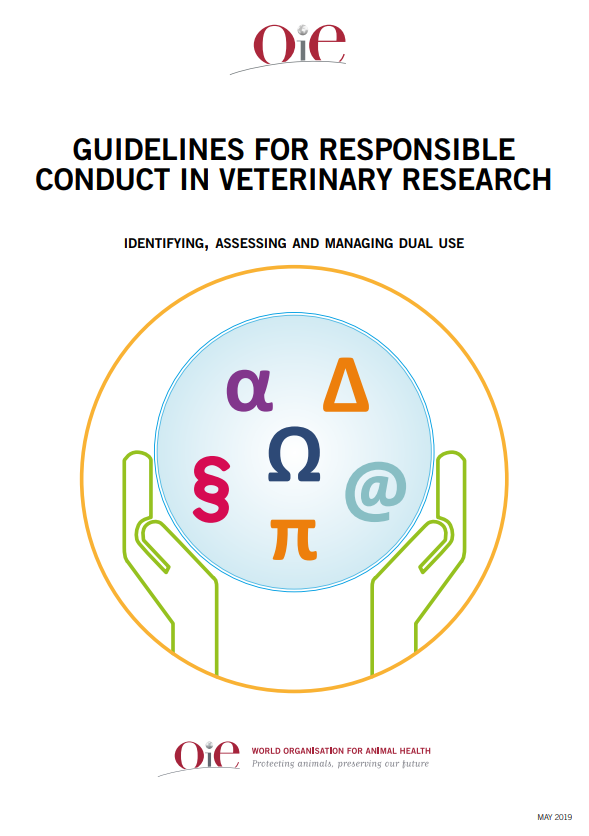To address the bioethical and biosafety challenges associated with fast-developing dual-use biotechnology, World Organization of Animal Health (OIE) of United Nations officially released online a "Guidelines for Responsible Conduct in Veterinary Research——Identifying, Assessing, and Managing Dual Use" on May 17, 2019. The guidelines will be introduced all its 182 member states in the OIE annual conference later this year. Prof. Weiwen Zhang, director of the Center for Biosafety Research and Strategy Center (CBRS) at Tianjin University, as one of the six invited international experts by OIE, participated in the discussion and drafting of the guidelines.

As the only expert from Asia, Prof. Zhang was invited by the World Organization of Animal Health (OIE) to attend a three-day expert meeting at headquarters of the World Organization for Animal Health in Paris, France in November 2018. The expert meeting composed of six internationally renowned experts in the field of dual-use biotechnology, aimed at developing guidelines for the use, risk identification, assessment and management of dual-use biotechnologies in animal medical laboratories for 182 member-countries of the World Organization for Animal Health. During the expert meeting, Prof. Zhang discussed the risk identification and assessment of dual-use biotechnology, the definition of responsibilities of academic institutions and public participation in the governance of dual-use biotechnology with other experts, and the opinions were recognized and have been included into the final draft of the Guidelines.
The OIE has an extensive network of Collaborating Centers and Reference Laboratories, many of which work with pathogens, materials, technologies or knowledge with significant dual-use potential. In addition, numerous other stakeholders similarly engage in activities that could potentially, by accident or malicious intent, result in significant negative effects on animal health or human health. The purpose of this guidance is to raise awareness about the dual-use potential of research in veterinary settings, supporting veterinary professionals, researchers and other stakeholders to effectively identify, assess and manage dual-use implications. These guidelines aim at providing thought-provoking impulses and encouraging reflection as countries and institutions work towards implementation of their own dual-use guidelines.
As an international thinktank, CBRS of Tianjin University have actively participated in the discussing and establishing of the relevant policy and regulation on science and technology. In addition to the work with OIE, the center also participated in the drafting of “the Proposal for the Development of a Model Code of Conduct for Biological Scientists” for the Biological Weapons Convention” of the United Nations, as submitted by the delegates of China and Pakistan in 2017.
